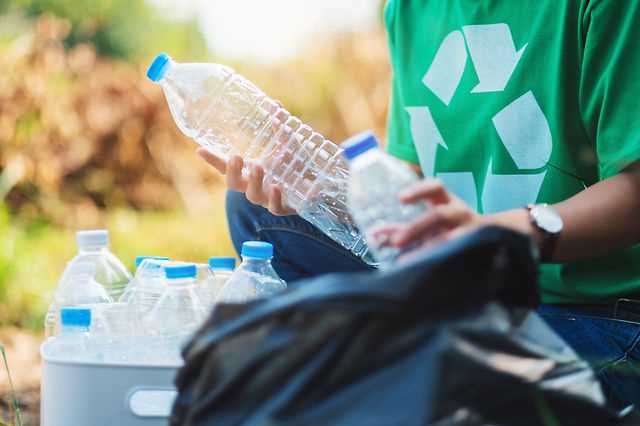
Recycling plays a crucial role in preserving the environment and reducing waste. However, the level of recycling varies greatly from country to country. In Turkey, a country known for its rich history and vibrant culture, the practice of recycling is still in its nascent stages.
While the concept of recycling is not entirely foreign to the Turkish population, it is not yet a common practice. Many people are simply unaware of the benefits and importance of recycling. As a result, there is a lack of proper infrastructure and education on recycling, making it challenging to implement widespread recycling programs.
One of the main reasons for the slow adoption of recycling in Turkey is the lack of awareness among the general public. Many people do not realize the negative impact that improper waste disposal can have on the environment. As a result, recycling bins are often overlooked or used incorrectly, and recyclable materials end up in landfills.
Another factor contributing to the low recycling rates in Turkey is the limited infrastructure for recycling collection and processing. While some municipalities have implemented recycling programs, they are often insufficient and inaccessible to a large portion of the population. This lack of infrastructure hinders the efficient collection and sorting of recyclable materials.
In recent years, the Turkish government has recognized the importance of recycling and has taken steps to promote its practice. However, there is still a long way to go before recycling becomes a common practice throughout the country. Efforts are being made to improve infrastructure, raise awareness, and educate the public on the benefits of recycling. These initiatives aim to create a more sustainable future for Turkey and protect its natural resources.
- The Current State of Recycling in Turkey
- The Role of Government and NGOs
- The Future Outlook
- Understanding Recycling Habits in Turkish Society
- Challenges and Obstacles to Recycling in Turkey
- Government Initiatives and Policies on Recycling
- Successful Recycling Programs and Inspiring Examples
- 1. Istanbul’s Recycling Initiative
- 2. The Green Dot System
- Encouraging a Culture of Recycling in Turkey
- Q&A:
- Is recycling common in Turkey?
- Why is recycling not common in Turkey?
- Are there any recycling programs or initiatives in Turkey?
- What are the benefits of recycling in Turkey?
- What can individuals do to promote recycling in Turkey?
- Is recycling a common practice in Turkey?
- What are the challenges in recycling in Turkey?
The Current State of Recycling in Turkey
Turkey, as a developing country, is facing numerous challenges when it comes to waste management and recycling. While recycling practices have gained some momentum in recent years, it is still not a common practice among the general population.
One of the main issues that hinder recycling efforts in Turkey is the lack of awareness and education about the importance of recycling. Many people are simply unaware of the benefits of recycling and how it can contribute to the environment.
Furthermore, the infrastructure for recycling is not well-developed in many parts of the country. There is a lack of recycling facilities and collection systems, making it difficult for individuals to dispose of their recyclable materials properly.
Another challenge is the absence of a comprehensive recycling policy and regulations. While there are some initiatives and regulations in place, they are not implemented consistently across the country. This lack of consistency and enforcement hampers recycling efforts and leads to low participation rates.
The Role of Government and NGOs
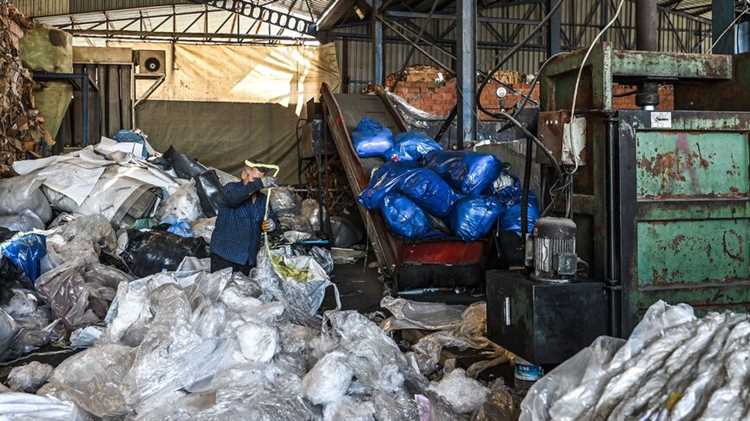
The Turkish government and non-governmental organizations (NGOs) play a crucial role in promoting and facilitating recycling practices in the country. The government has started to invest in recycling infrastructure and has implemented educational campaigns to raise awareness about recycling.
NGOs are also actively involved in promoting recycling and waste management practices. They organize recycling events, conduct awareness campaigns, and provide resources and information to individuals and communities interested in recycling.
The Future Outlook
Despite the current challenges, there is potential for significant improvement in recycling practices in Turkey. The government’s efforts, along with increased public awareness and participation, can lead to a more sustainable waste management system.
It is essential for the government to continue investing in recycling infrastructure, implementing consistent regulations, and promoting educational campaigns to increase awareness about recycling. Additionally, individuals and communities can contribute by actively participating in recycling programs and adopting sustainable waste management practices in their daily lives.
With collective efforts and a comprehensive approach, Turkey can move towards a more environmentally friendly and sustainable future, making recycling a common practice for the benefit of both present and future generations.
Understanding Recycling Habits in Turkish Society
In order to tackle the issue of recycling in Turkey, it is essential to understand the recycling habits of the society. Recycling is not yet a common practice in Turkish society, but efforts are being made to promote and encourage recycling behaviors.
One of the main reasons for the low recycling rates in Turkey is the lack of infrastructure and awareness. Many neighborhoods and cities do not have proper recycling facilities or systems in place, making it difficult for individuals to recycle their waste. Additionally, there is a lack of awareness about the importance of recycling and its environmental benefits.
Another factor that influences recycling habits in Turkish society is the lack of education on recycling. Many people are unaware of what materials can be recycled and how to properly dispose of them. This results in a significant amount of recyclable waste being thrown into general waste bins.
Furthermore, there is a cultural aspect to recycling habits in Turkey. Traditionally, there has been a culture of reusing and repurposing items rather than disposing of them. While this is a positive habit, it has also contributed to the lack of emphasis on recycling.
However, it is important to note that attitudes towards recycling are slowly changing in Turkish society. Environmental organizations, government initiatives, and campaigns are raising awareness about the importance of recycling and providing education on how to recycle correctly.
Efforts are also being made to improve recycling infrastructure, with the implementation of recycling bins in some neighborhoods and the establishment of recycling centers in cities. These initiatives aim to make recycling more accessible and convenient for individuals.
In conclusion, while recycling is not yet a common practice in Turkish society, there are ongoing efforts to promote and encourage recycling habits. The lack of infrastructure, awareness, and education are some of the main challenges to overcome. However, with continued efforts and initiatives, it is hopeful that recycling will become a more widespread practice in Turkish society.
Challenges and Obstacles to Recycling in Turkey
While recycling has gained popularity in many countries around the world, Turkey still faces several challenges and obstacles in implementing an effective recycling system. These challenges include:
- Lack of Awareness: One of the main obstacles to recycling in Turkey is the lack of awareness among the general population. Many people are still unaware of the importance of recycling and its impact on the environment.
- Inadequate Infrastructure: Another challenge is the lack of adequate recycling infrastructure in Turkey. There is a limited number of recycling facilities and collection points, making it difficult for people to recycle their waste properly.
- Limited Government Support: The government’s support and initiatives for recycling in Turkey are also limited. There is a lack of clear policies and regulations that promote recycling, making it challenging for individuals and businesses to participate in recycling activities.
- Lack of Separation at Source: One of the major obstacles to effective recycling in Turkey is the lack of separation at source. Many households do not separate their waste into different categories, making it challenging for recycling facilities to process and recycle the waste efficiently.
- Inefficient Collection Systems: The collection systems for recyclable materials in Turkey are often inefficient and unreliable. There is a lack of proper collection bins and vehicles, leading to difficulties in collecting and transporting recyclable waste.
Despite these challenges, Turkey has taken some steps towards improving its recycling practices. For example, the government has implemented a recycling initiative called “Zero Waste” to increase awareness and encourage recycling. Additionally, there are NGOs and environmental organizations working to promote recycling and educate the public about its benefits.
Overall, addressing these challenges and obstacles is essential for Turkey to establish a more sustainable and efficient recycling system. It requires a collective effort from the government, businesses, and individuals to encourage recycling and create a greener future for Turkey.
Government Initiatives and Policies on Recycling
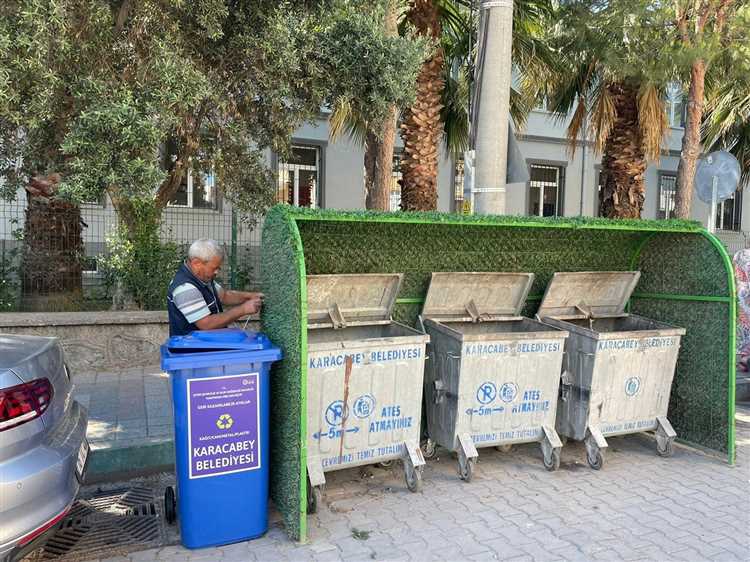
The government of Turkey has recognized the importance of recycling and has implemented several initiatives and policies to promote and encourage the practice.
One of the key initiatives is the establishment of recycling centers and facilities across the country. These centers serve as collection points for recyclable materials, making it convenient for residents to dispose of their waste properly. The government has also invested in the development of recycling infrastructure, such as specialized recycling machinery and equipment, to support these centers.
Additionally, the government has introduced financial incentives to encourage recycling. For instance, waste management companies are given tax benefits if they meet certain recycling targets. This not only promotes recycling but also creates economic incentives for businesses to participate in the recycling industry.
Furthermore, the government has implemented strict regulations on waste management and recycling. It has set regulations regarding waste separation, collection, and disposal, making it mandatory for businesses and households to comply. These regulations ensure that recycling is taken seriously and that proper waste management practices are followed.
Education and awareness campaigns are also a part of the government’s efforts to promote recycling. Various initiatives have been launched to educate the public about the importance of recycling and how to properly separate and dispose of waste. Schools and universities often participate in these campaigns, teaching students about the benefits of recycling from a young age.
Overall, the government of Turkey has shown a strong commitment to promoting recycling through various initiatives and policies. With the implementation of recycling centers, financial incentives, strict regulations, and education campaigns, it aims to create a sustainable and environmentally friendly waste management system for the country.
Successful Recycling Programs and Inspiring Examples
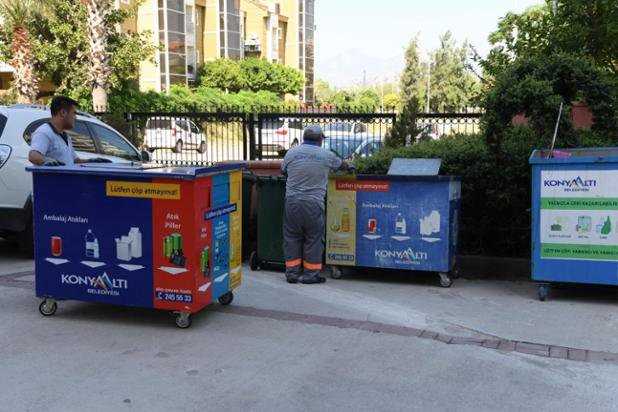
Recycling is a growing trend in Turkey, and there are several successful recycling programs that have been implemented across the country. These programs not only help to reduce waste and promote sustainability, but they also serve as inspiring examples for other communities and countries to follow.
1. Istanbul’s Recycling Initiative
Istanbul, as the largest city in Turkey, has taken numerous steps to promote recycling. One of the most successful initiatives is the implementation of recycling bins in public areas, such as parks, streets, and public transportation hubs. These bins are strategically placed to encourage citizens to recycle their waste and keep the city clean. Additionally, Istanbul has collaborated with local recycling companies to ensure that the collected waste is properly sorted and recycled.
2. The Green Dot System
The Green Dot System, which was first introduced in Germany, has also been implemented in Turkey and has proven to be a successful recycling program. The system focuses on reducing packaging waste by placing a green dot symbol on products that comply with recycling regulations. This symbol indicates that the manufacturer has contributed financially to the recycling process. Consumers can easily identify which products are recyclable by looking for the green dot symbol, which helps to increase recycling rates and reduce waste.
In addition to these programs, there are many inspiring examples of individuals and organizations taking action to promote recycling in Turkey. For example, the “Zero Waste” movement has gained popularity, with individuals adopting a lifestyle that aims to produce little to no waste. There are also numerous community-based initiatives, such as neighborhood composting projects and educational programs in schools, that encourage recycling and raise awareness about its benefits.
These successful recycling programs and inspiring examples demonstrate that recycling is indeed a common practice in Turkey, and efforts are being made to ensure that it continues to grow. With increased awareness and participation, Turkey has the potential to become a leader in recycling and sustainability in the region.
Encouraging a Culture of Recycling in Turkey
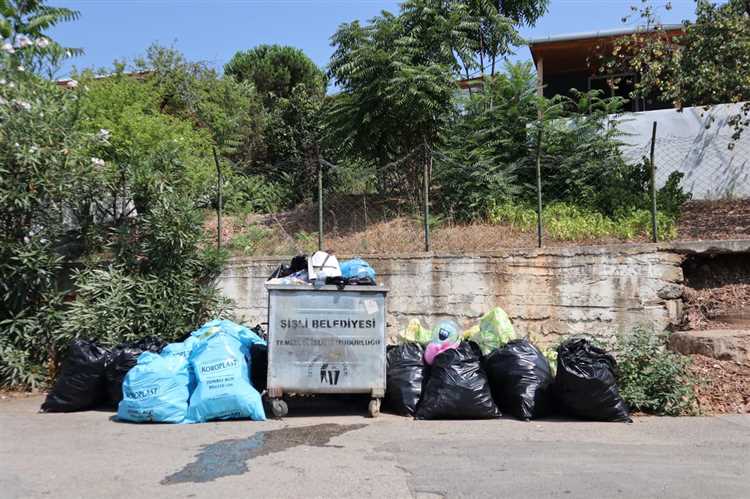
Recycling is an important practice that helps protect the environment and conserve valuable resources. In Turkey, however, recycling is not yet a common practice. To encourage a culture of recycling in the country, several steps need to be taken.
Firstly, education and awareness campaigns are crucial in promoting recycling. Schools, universities, and community centers should organize workshops, seminars, and events to teach people about the importance of recycling and how to properly recycle different materials.
Furthermore, the government should provide incentives and facilities to make recycling more accessible for citizens. This could include setting up recycling bins in public areas, implementing recycling programs in residential buildings, and offering financial incentives to individuals and businesses that actively participate in recycling efforts.
In addition, it is important for the government to invest in recycling infrastructure. This includes establishing recycling centers and upgrading existing facilities to ensure efficient sorting and processing of recyclable materials.
Collaboration with the private sector is also essential in promoting recycling. Companies should be encouraged to incorporate sustainable and eco-friendly practices into their operations. This could involve using recycled materials in manufacturing, implementing efficient waste management systems, and supporting recycling initiatives financially.
| Benefits of Recycling | Ways to Promote Recycling |
|---|---|
| Reduces pollution and greenhouse gas emissions | Education and awareness campaigns |
| Conserves natural resources | Government incentives and facilities |
| Saves energy | Investment in recycling infrastructure |
| Creates jobs | Collaboration with the private sector |
In conclusion, encouraging a culture of recycling in Turkey requires a multi-faceted approach involving education, government initiatives, infrastructure development, and collaboration with the private sector. By taking these steps, Turkey can move towards a more sustainable future and contribute to global efforts to protect the environment.
Q&A:
Is recycling common in Turkey?
Recycling in Turkey is not as common as in some other countries. However, there has been an increasing awareness about the importance of recycling in recent years.
Why is recycling not common in Turkey?
One of the main reasons recycling is not common in Turkey is the lack of infrastructure and proper waste management systems. There is also a lack of awareness and education about the benefits of recycling.
Are there any recycling programs or initiatives in Turkey?
Yes, there are several recycling programs and initiatives in Turkey. Some municipalities have implemented separate collection systems for different types of waste, such as paper, plastic, and glass. There are also private companies and organizations that promote recycling and provide recycling facilities.
What are the benefits of recycling in Turkey?
Recycling in Turkey can have several benefits. It helps reduce the amount of waste that goes to landfills, conserves natural resources, saves energy, and reduces pollution. Recycling can also create job opportunities and contribute to a more sustainable future.
What can individuals do to promote recycling in Turkey?
Individuals can promote recycling in Turkey by practicing proper waste segregation, using recycling bins, and supporting local recycling initiatives. They can also spread awareness about the benefits of recycling, reduce waste generation, and choose products with recyclable packaging.
Is recycling a common practice in Turkey?
Recycling in Turkey is not yet a common practice. Although there is an increasing awareness about the importance of recycling, the infrastructure and processes for recycling are not well-developed in the country.
What are the challenges in recycling in Turkey?
There are several challenges in recycling in Turkey. Firstly, there is a lack of proper infrastructure for collection and sorting of recyclable materials. Additionally, there is a lack of awareness and education about recycling among the general public. Finally, there is a lack of government regulations and incentives to promote recycling.